#rafaella cerullo
Explore tagged Tumblr posts
Text
*muttering incoherently while rocking back and forth on the floor of my padded cell, ripping out chunks of my own hair*
jackieshauna elena ferrante parallels jackieshauna elena ferrante parallels jackieshauna elena ferrante parallels jackieshauna elena ferrante parallels jackieshauna elena ferrante parallels jackieshauna elena ferrante parallels jackieshauna elena ferrante parallels jackieshauna elena ferrante parallels
#i haven’t even finished it yet but THE PARALLELS#i would say no spoilers but i fear i already know how this story is going to end and i’m not prepared#tragic toxically codependent and competitive homoerotic female friendships you will always be famous#only one of you can make it out alive but neither of you will ever truly make it out#you will never be free of each other#you are tied up in each others blood#in the very fabric of your dna#there is no escape from the toxic lesbian situationships of our youth#elena ferrante#my brilliant friend#elena greco#lenu greco#rafaella cerullo#lila cerullo#shauna shipman#jackie taylor#jackieshauna#jackie x shauna#yellowjackets#shauna sadecki#shaunajackie#shauna yellowjackets#jackie yellowjackets#neapolitan novels#the neapolitan novels#yj#mbf#shauna x jackie#jackie taylor x shauna shipman
31 notes
·
View notes
Text
—Es bonito —murmuré—, hablar con los demás.
—Sí, pero solo si cuando hablas alguien te contesta.
#l'amica geniale#la amiga estupenda#elena greco#rafaella cerullo#lila cerullo#dos amigas#elena ferrante
0 notes
Note
🐮
hii sorry for the delay !!!

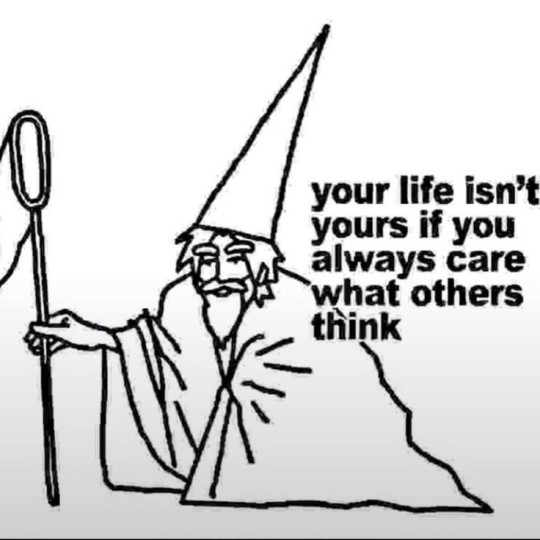


send me a 🐮 & i'll make you a 4-picture moodboard using my pinterest feed ♡
3 notes
·
View notes
Note
hi! for the ask game: björk
taste!!!!!! im gonna go for: joga/venus as a boy/army of me/all is full of love/human behaviour
im v nostalgic for the old stuff cause i used to listen to debut as a kid in the back of my parents car when we went on road trips to wales during the holidays :))))
send me artists/albums for my top 5 songs!
4 notes
·
View notes
Text
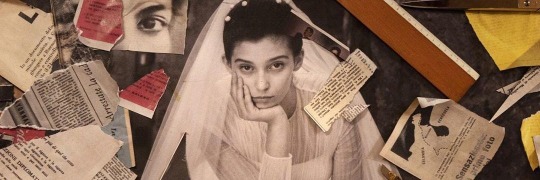





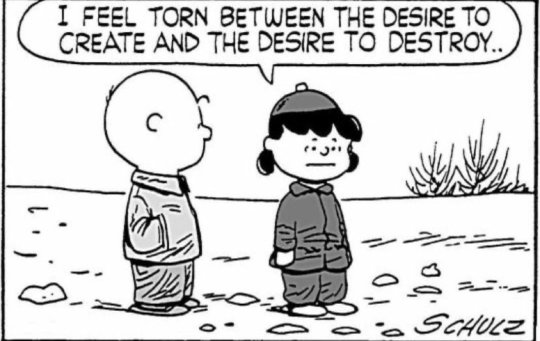
raffaella cerullo as a goddes of destruction and creation: hbo l'amica geniale / my brilliant friend, elena ferrante / hannibal's ko no mono recap, jonathan raeder / shiva depiction / the story of the lost child, elena ferrante / rafaella, the bump / charlie brown
#lila cerullo#raffaella cerullo#the neapolitan novels#elena ferrante#l'amica geniale#my brilliant friend#parallels#parallel#comparatives#comparative#web weaving#web weavings
186 notes
·
View notes
Text
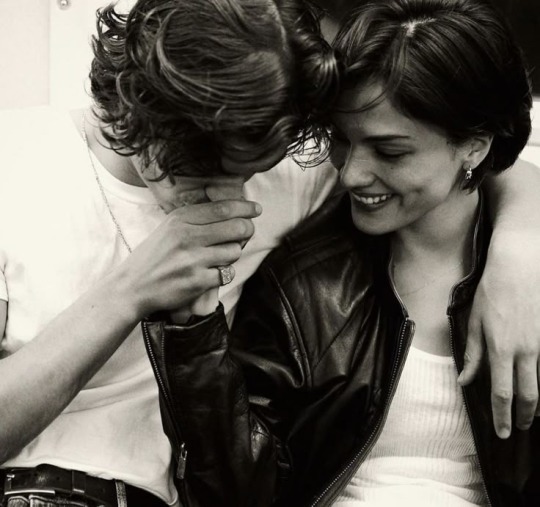
Being with Rafaella It’s like living a dream. Being loved by her. Feeling the touch of her kisses. The touch of our hands.
Rafaella showed me that the first love is not only a gift from the universe, but something we’ll never forget. And I’ll never forget her. She’s the love of my whole life and existence.
Everything I believe surrounds her.
I love the sound of her voice when she’s dying of laughter. The way her eyes almost close when she’s smiling at me when I come home to her. To our family. To our place. She’ll be my wife and home and safe space forever.
I can’t wait to talk about Rafaella Cerullo to our kids.
6 notes
·
View notes
Text
Apesar de não andar muito por aqui (o lamento de uma clt com jornada de trabalho de 44h semanais), gostaria de dizer que me encontro totalmente monotemática ao focar em advogar a favor de rafaella cerullo sempre que posso.
Eu poderia passar horas falando (escrever é mais difícil) sobre como ela é uma personagem incrível e muito injustiçada pois a altivez dela faz com que os outros tirem qualquer inocência sobre as mais diversas ações porque jogar nela todo o mal do mundo facilita para os outros não assumirem o quão hipócritas são.

(Minha defesa se estende ao enzo, mas esse é um anjo na terra que foi preparada para ser entregue à lila e ela soube aproveitar - não iremos falar do fim, ok?)

Enfim, por enquanto, é isso. Talvez eu volte para uma retrospectiva básica do que andei lendo/assistindo nas horas vagas (que foram poucas!); mas se não voltar, fica aqui o meu desejo de um feliz Natal e um excelente ano novo à todos ❤️
#raffaella cerullo#gaia girace#my brilliant friend#literatura#tv#aesthetic#l'amica geniale#lila cerullo#giovanni buselli
7 notes
·
View notes
Text
Análise da série "A Amiga Genial" feita para o site Delirium Nerd em maio de 2020.
#amiga genial#napoles#italia#serie#seriado#my brilliant friend#helena greco#rafaella cerullo#delirium nerd#jornalidades
2 notes
·
View notes
Note
is my brilliant friend... about friendship? i want to read about friendship
yes!! i am about halfway through now so i cant speak for the second half of the book but. so far it is about the friendship between two girls growing up in a neighbourhood in naples in the 50s/60s and it is sooo good like their friendship is. so strange and knotty and intricate and yet so so familiar and real and recognisable. its told from the perspective of one of the girls who, being more passive, adores and idolises and measures herself against her seemingly more assertive friend who is. honestly such an insane person i am obsessed with her so far i love her. and simultaneously she is straining away from her, and trying to create her own identity and growing up and all the stuff that comes with that, and i havent quite reached the culmination of all that yet but it is sooo good so far like i am hooked so honestly i heavily recommend <33
#if any of this ceases to be true in the next 180 pages. well i cant be held accountable for that !!#anyway rafaella cerullo i love you you are so strange....<3#telegram#seph tag#reading tag
8 notes
·
View notes
Photo


let me see how beautiful you are
#tv: my brilliant friend#c: elena greco#c: rafaella cerullo#my brilliant friend#l'amica geniale#lenù greco#lila cerullo#mine: gifs#perioddramaedit#so funny story my computer died the another day#and I just watched the episodes#look I don't want to say they are in love but they are#bho erano so soft e tutti i sorrisetti complici
237 notes
·
View notes
Text
Elena Ferrante not only has female characters so complex that it’s inevitable to adore them despite their countless flaws, terrible decisions, contradictions, and reprehensible actions. Women who, in the hegemonic conception of gender dynamics, would be easily portrayed in a twisted manner, but she sketches them as complete human beings with multiple dimensions and shades of gray, which gives them a humanity that gets under your skin and overwhelms your entire body. She is also a writer whose most terrible male characters are those who could become heroic protagonists in other stories, but she reduces them to pathetic wretches who are nothing more than a shadow of what they always aspired to be, and they don’t necessarily have to physically bully women to show themselves as the worst scum on the planet. And yes, I am talking about Nino Sarratore and my ability to write an essay on why he is the worst man in literature and to what extent Ferrante’s portrayal brilliantly shapes a horrifically terrible character. I have many feelings about the new and final season of this saga, but I will analyze it when I recover emotionally. It’s been four years since I finished the books, and it still gives me chills when I think about everything it made me feel, so I don’t know when I will feel ready to talk about the series.
#elena ferrante#elena greco#lenu greco#rafaella cerullo#lila cerullo#la amica genial#my brilliant friend#lila y lenu my beloveds#i feel so much for them#my babies#nino sarratore#nino sarratore worst man alive
144 notes
·
View notes
Text
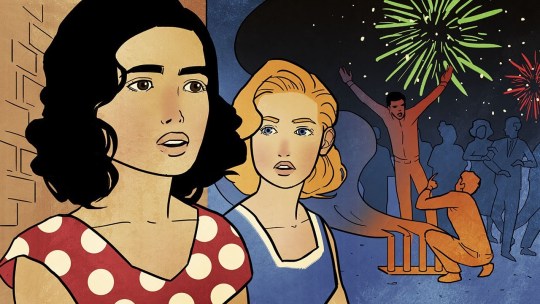
A amiga genial
Texto de Fabiane Secches
No filme italiano Anos felizes (2013), o protagonista é um artista plástico que passa todo o tempo perseguindo um feito notável, mas é acusado pela crítica de ser artificial — faltaria verdade em sua obra. Apenas ao final, depois de viver uma dolorosa separação, ele consegue o reconhecimento pretendido ao criar uma escultura enorme, um corpo feminino de formas infladas que ocupa todo o espaço de seu ateliê, invadindo os ambientes. Quando sua ex-esposa, antes constantemente privada desse mesmo espaço pelo artista, vem enfim visitá-lo, ela lhe pergunta, olhando para o rosto da escultura, quem é ela. Ao que ele responde: “sua ausência”.
Assisti ao filme pouco antes de ler o também italiano A amiga genial, de Elena Ferrante, e agora me recordo dessa cena menos pela sua nacionalidade do que pelo seguinte: assim como a escultura, a ausência de Ferrante é uma forma de presença inegável, mais afirmativa do que se encontrássemos seu retrato na orelha do livro ou notícias sobre a sua vida em uma busca pela internet. Elena Ferrante, para quem ainda não sabe, é o pseudônimo de uma autora italiana que publica desde 1992.
É difícil escrever um texto sobre uma obra específica de Ferrante sem passar pela sua própria história, ou por sua não-história. Em carta datada de 1991, explica aos editores por que gostaria de se manter ausente: “eu acredito que os livros, uma vez que tenham sido escritos, não tenham qualquer necessidade de seus autores. Se eles têm algo a dizer, vão encontrar cedo ou tarde seus leitores”. A ficção acaba competindo com os rumores que passam ao lado, e que de certa forma a atravessam.
De todo modo, seu texto é tudo o que temos. O restante, além das entrevistas (sempre concedidas por intermédio de seus editores italianos, Sandro e Sandra Ferri), é especulação. “O caminho das minhas obras é o meu caminho”, afirmou em uma entrevista recente. “O meu trabalho pretende chamar a atenção para a unidade original entre autor e texto e para a autossuficiência do leitor, que pode deduzir dessa unidade tudo aquilo que for necessário.”
A amiga genial é o primeiro livro da chamada tetralogia napolitana, publicado na Itália em 2011. Chegou ao Brasil em 2015 pela Biblioteca Azul, selo da Globo Livros, com tradução de Maurício Santana Dias. Entre 2012 e 2014, Ferrante lançou as sequências: História de um novo sobrenome, História de quem foge e de quem fica e História da menina perdida.
Nos quatro volumes, acompanhamos a história da amizade entre duas mulheres, Elena Greco (Lenu) e Rafaella Cerullo (Lila), desde a infância até os dias atuais. A premissa da tetralogia também passa pela questão que nos assombra sobre a autora: a ausência. A amiga genial tem início com um prólogo no qual Elena, a narradora da história, recebe um telefonema sobre o desaparecimento de Lila, sua amiga há quase sessenta anos. Quem está do outro lado é Rino, filho de Lila. Por orientação de Elena, ele procura por qualquer vestígio que a mãe possa ter deixado, sem sucesso. Nenhuma roupa, nenhum documento. Até as fotos em que apareciam juntos, quando menino, foram recortadas. Lila havia desaparecido por completo.
Elena nos conta que há cerca de trinta anos, a amiga lhe fala sobre o desejo de desaparecer. Não se tratava de fugir, nem de recomeçar em um lugar distante com nova identidade, tampouco considerava a ideia de cometer suicídio. Lila “queria volatizar-se, queria dissipar-se em cada célula, e que ninguém encontrasse o menor vestígio seu”. A narradora recebe a notícia de maneira intrigante:
“Como sempre Lila exagerou, pensei.
Estava extrapolando o conceito de vestígio. Queria não só desaparecer, mas também apagar toda a vida que deixara para trás.
Fiquei muito irritada.
Vamos ver quem ganha desta vez, disse a mim mesma. Liguei o computador e comecei a escrever cada detalhe de nossa história, tudo o que me ficou na memória.”
É este, então, o texto que verdadeiramente nos aguarda: não a história sobre o desaparecimento de Lila, mas a tentativa de Elena em recuperá-la, em não deixá-la desaparecer, ao escrever cada pequena recordação sobre a história da amizade entre ambas. Conhecemos Lila através de seus olhos, portanto temos dela uma imagem limitada tanto pela perspectiva da narradora quanto pelos caminhos obscuros da memória, mas essa é a única versão da história que poderemos conhecer.
Elena e Lila nasceram em Nápoles e cresceram em um contexto violento: uma periferia pós-guerra em uma cidade que convive com a máfia (a Camorra). Além do contexto sociopolítico tão bem retratado, uma das maiores qualidades de A amiga genial é a construção de personagens complexas e verossímeis. Ao contrário da figura misteriosa de sua autora, Elena e Lila são tão tangíveis que é difícil acreditar que não sejam reais. Se para alguns isso resulta na suspeita de uma autobiografia, para outros prova apenas o talento de Ferrante ao manusear a palavra escrita.
James Wood, um dos críticos literários mais prestigiados do cenário atual, escreveu um texto sobre Ferrante na revista New Yorker e se desdobrou em elogios: “ela é autora de romances memoráveis, lúcidos, ferozmente honestos”. A sinceridade que atinge através de uma prosa muito clara é impressionante. Falar sobre seu texto é reduzi-lo. Para entender, é preciso lê-la.
A amizade entre as protagonistas é tão forte quanto conflituosa. Antes do prólogo, o livro começa com uma citação do Fausto de Goethe, no qual o Senhor (Deus) fala: “O agir humano esmorece muito facilmente, em pouco tempo aspira ao repouso absoluto. Por isso lhe dou de boa vontade um colega que sempre o espicace e desempenhe o papel do diabo”. É precisamente sobre isso do que trata este primeiro livro: quem seria Elena sem a Lila que a desafiasse? E quem seria Lila, do mesmo modo, sem que Elena a narrasse? Se uma instiga a outra, “acende” a outra, também o afeto que as une é uma faísca que nos ilumina por toda leitura. A relação entre ambas é também um exílio onde se refugiam de uma realidade opressora: a imaginação contra o bairro, a literatura contra a violência cotidiana.
Não me lembro de ter lido uma história tão bonita e complicada sobre a amizade entre duas mulheres, não com todas as nuances que encontrei aqui. Fez com que pensasse em algumas das referências que tenho eu mesma, nas Lilas de minha história.
O primeiro volume da tetralogia é dividido em duas partes, a infância (“História de Dom Achille”) e a adolescência (“História dos Sapatos”) das personagens. Duas garotas descobrindo a si mesmas e o mundo em volta, tentando entender quais limites definem quem são e quais limites separam uma da outra. Elena percebe quem é ao tomar conhecimento do que não é, do que Lila traz para a sua vida e não existiria sem a presença da amiga. De outro lado, mesmo em sua ausência, existe uma Lila internalizada que a acompanha sempre e surge como referência em cada conflito, como a única figura feminina que lhe permite a possibilidade de escapar de seu destino, de não se tornar sua própria mãe:
“Algo me convenceu, então, de que se eu caminhasse sempre atrás dela, seguindo sua marcha, o passo de minha mãe, que entrara em minha mente e não saíra mais, por fim deixaria de me ameaçar. Decidi que deveria regular-me de acordo com aquela menina e nunca perdê-la de vista, ainda que ela me aborrecesse e me escorraçasse.”
Lila era “levada sempre, pior que os meninos” e uma menina brilhante. Foi a primeira da classe a aprender a ler e escrever, e fez isso por conta própria. Mesmo quando é impedida de continua na escola, continua sendo o baluarte intelectual de Elena. É capaz de aprender latim e grego sozinha, antes da amiga: “Ela sempre fazia as coisas que eu precisava fazer, e antes, e melhor? Escapava quando eu a perseguia e enquanto isso me encalçava para superar-me?”. Elena também nos conta que Lila escrevia com tal habilidade que “não deixava nenhum vestígio de inaturalidade, não se sentia o artifício da palavra escrita”. Lila “sabia ser autônoma, ao passo que eu dependia dela, porque tinha coisas dentro de si às quais eu não podia ter acesso”, conta.
Por isso, chegamos às últimas páginas do primeiro volume enxergando Lila como a amiga genial do título. Mas, no final, descobrimos que quem usa a expressão é ela, para se referir a Elena: “você é minha amiga genial”. Cada uma é a amiga genial da outra. As duas personagens alternam sentimentos e papéis de modo que muitas vezes fica difícil separar uma da outra.
Na narrativa de Elena, o afeto que sente por Lila, ainda que controverso, soa tão genuíno que quase conseguimos tocá-lo, como um terceiro protagonista do livro. Ferrante escreve com domínio completo da história, nada parece lhe escapar. Mesmo os assuntos mais espinhosos são conduzidos de maneira franca. Impressiona também a relação de Elena e Lila com a literatura e a capacidade da autora em passar por questões tão espinhosas. Muito tem sido dito sobre o conhecimento que Ferrante demonstra ter da cultura clássica e do contexto histórico, mas vale notar também as referências freudianas e um certo olhar psicanalítico, como no episódio de “desmarginação”, neologismo criado por Lila para exprimir uma espécie de ruptura, de perda de contornos que acomete a personagem em uma noite de ano novo, ou na narração da panela de cobre que se desfaz, como Lila relata em carta à Elena.
Quando questionada sobre por que teria escolhido um pseudônimo e a posição à sombra de seus livros, Ferrante respondeu: “Talvez por qualquer desejo neurótico de intangibilidade”. Em entrevista publicada na revista The Paris Review, a autora teria dito a seus editores italianos que tem o hábito de escrever seus próprios sonhos: “Eu tenho feito isso desde que era uma garota. É um exercício que recomendo a todos. Submeter a experiência do sonho à lógica da vigília é um teste extremo de escrita. Nunca seremos capazes de reproduzir um sonho com precisão. É uma batalha perdida. Mas colocar em palavras a verdade de um gesto, de um sentimento, de um fluxo de eventos, sem domesticá-los, não é uma tarefa tão simples quanto pode parecer”.
Em outras passagens da mesma entrevista, Ferrante usa expressões como “fragmentos de memória”, que sua mãe, em italiano, chamava de frantumaglia. O termo intitula um livro de entrevistas, cartas e escritos de Ferrante classificados como autobiográficos, que foi publicado na Itália em 2003.
O poeta italiano Attillio Bertolucci escreveu que não existe presença mais aguda do que a ausência. Elena Ferrante parece concordar: “Estou presente, tanto nos meus romances como nas respostas às suas perguntas. O único espaço onde o leitor deveria procurar e encontrar o autor é o da sua escrita”.
Com um texto como a dela, fica difícil acreditar que não seja o bastante.
* * *
Nota: uma primeira versão desse texto foi publicada na revista Confeitaria em 25 de agosto de 2015.
A imagem que abre o post é daqui.
4 notes
·
View notes
Text
HBO's Adaptation of 'My Brilliant Friend' is Intense, Rich & Painful
hi i got to write about HBO’s adaptation of “My Brilliant Friend,” which will please fans of the book series but it may be harder for newcomers to lock into it.

Adapting novels into TV shows or movies is nothing new. Hollywood has been doing that for decades — it's a proven formula that shows when a beloved book is transformed to the screen it can be a massive success. HBO alone has built its empire on source material, namely the novels "Game of Thrones" and more recently "Big Little Lies."
It's likely the network has another hit on its hands with "My Brilliant Friend," based on the incredibly popular Neapolitan book series by Elena Ferrante. The show may not have dragons or A-list celebs but makes up for that by channeling what the novels do so well. It packs a powerful and emotional punch and, for better or for worse, transports you to a small working-class town in 50s Italy.
The first season of "My Brilliant Series," which debuts Sunday on HBO, follows the epic friendship of two young girls Elena Greco, a.k.a. Lenù (Elisa Del Genio plays her as a girl and Margherita Mazzucco as a teen), and Rafaella Cerullo, a.k.a. Lila (Ludovica Nasti as a girl and Gaia Girace as a teen). They're both exceptionally intelligent girls drowning in a town who don't know how to handle their gifts. Their parents would rather put them to work than further their education and nurture their gifts. On top of unsupportive family life, the girls witness violence on almost a daily basis. The two watch as their community destroys itself from the inside out; mostly by men. The men in this drab town outside of Naples physically assault each other and even kill each other over petty squabbles. The women, too, get into fights and scream obscenities at each other, imprinting toxic behavior on the impressionable children who watch them.
We watch as the girls grow from elementary school students to teens. As they age and become aware of the painful world around them, we watch as their friendship blooms and diverges. In one episode, Lenù and Lila are reading "Little Women" together until the book falls apart. Years later, the duo are in competition with each other while Lenù continues schooling (much to her mother's chagrin) and Lila is forced to work in her father's shoe shop. Nevertheless, despite receiving formal education, Lila consumes every book she can get her hands on, learning Latin and Greek by herself and surpassing Lila.
"My Brilliant Friend" is a faithful adaptation of Ferrante's novels. A co-production between HBO and Italy's RAI and TMIVision, the limited series is a rich and painful story brought to life by director Saverio Costanzo, who helms all eight episodes. He also co-writes, alongside Francesco Piccolo and Laura Paolucci, bringing the girls to life. It sticks to the book's framing device, using voiceover from a much older Lenù, who begins writing this story when she gets a call from Lila's son that she is missing. The voice over can be annoying when it feels like Ferrante's prose is literally cut and pasted into the show.
Despite its lavish production, "My Brilliant Friend" feels small, contained and modest. Most of the first season is set in the small town, which feels incredibly claustrophobic. It's a relief any time the characters get to venture outside the town. The show's slow pacing is frustrating and nearly every scene is full of intense dread — as if any moment someone could snap and cause harm to the two young protagonists. Even in the show's happier moments — specifically a New Year's celebration — the fear of something truly awful happening is always in the back of the viewer's mind.
That may be part of the experience of watching the devastatingly sad "My Brilliant Friend," but a show too drenched in despair (not to mention one with a 56-minute runtime that is in no rush to get to where it's going) is a hard hang. But those who have consumed the books will surely be devout to the series. The show is also exceptional at weaving its themes into its narrative — class and money, or lack there of, play important parts in the story of the two girls. Getting their hands on a book is revolutionary. Convincing parents to enroll them into school is as challenging as climbing Mount Everest. Both girls come from a working class family and often bump up against the children around them whose families became rich off the fascist-era black market. In the back half of the season, Lenù and Lila are still impressionable teens but it feels like a revolution is bubbling.
Who knows how audiences who haven't read or heard of the books will receive "My Brilliant Friend." It's doesn't pander to American viewers — the show is in Italian and is subtitled; an unfortunate turn off for many. Though it's not a home run, there's something hypnotic about the show. If you invest time into Lenù and Lila's friendship, there will be a rich payoff in the episodes to come.
8 notes
·
View notes
Video
youtube
JEUDI 13 DECEMBRE 2018 (Billet 2/2)
« L’AMIE PRODIGIEUSE »
C’est le premier tome de la saga éponyme d'Elena Ferrante. D'inspiration auto-biographique parait-il bien qu’on ne sache pas grand-chose sur l’identité de l’auteur qui publie sous un pseudonyme.
L'histoire raconte l'enfance et l'adolescence d'Elena Greco, dans un quartier populaire de Naples. Le roman développe notamment longuement la relation d'amitié de l'héroïne avec Rafaella Cerullo. Les deux jeunes amies sont toutes les deux douées pour les études, mais seule Elena sera en mesure de les continuer, la famille de Rafaella ne pouvant les payer. L'intrigue se déroule dans le décor de Naples des années 50, avec une vision des événements historiques à travers les yeux des personnages.
Ce premier tome a été adapté en une Série de huit épisodes par HBO et la Rai sous le titre de « L’Amie prodigieuse » et ont commencé à être diffusés en Italie le 27 novembre 2018. Canal + en a racheté les droits et les programme pour les Fêtes.
Dommage que ce soit sur Canal +, Marina aurait adoré les regarder car elle a beaucoup aimé la saga, sauf un peu moins le dernier opus.
Les critiques sont excellentes et le casting, la reconstitution de l’époque, entre autre… à la hauteur du succès planétaire de l’œuvre (avec plus de 5,5 millions d'exemplaires vendus dans le monde, «c'est un peu le Harry Potter de la littérature adulte», disent certains éditeurs…).
0 notes
Text
THE NEAPOLITAN NOVELS Elena Ferrante (Translated by Ann Goldstein) Published by Europa Editions between 2011 and 2015
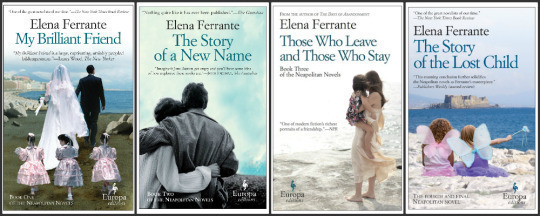
Although they have a habit of losing touch Elena Greco has found she is always drawn back to Rafaella Cerullo. But now in her sixties she has to come to terms with the news that her closest friend from childhood has vanished of her own volition. There has been no explanation, no final contact and no conclusion to their connection through life.
In this series of four novels (meant to be taken as a whole work but serialised by the publisher for reader convenience according to the author) Elena is provoked to undertake the linear and complete retelling of a lifelong friendship with the disappeared and detail the web of people in their neighbourhood which string together their relationship.
Having never read Ferrante before I had no idea what to expect from these novels. As Elena slowly unravels the events and actions that have marked two lifetimes she is able to describe minute emotional shifts in the relations and perceptions of these characters of each other. World and political events remain very much in the background as love, work, family and their sense of place in the world is building, shaping, battering and sometimes breaking the two forces of their personalities. Both characters find themselves drawing together and pulling apart repeatedly as they grow older and further away in time from their initial closeness as young girls in the 1940s. The novels tend to skip over periods where they loose touch and plunges you straight back in where they pick up their friendship again.
Much of the action is played out against the backdrop of their birthplace, a neighbourhood in Naples described as a place of poverty, sudden Mafia-related violence and a stifling, conservative atmosphere as close as the heat. The streets of Naples are to Elena equally beguiling and repelling. Women in particular can be held down in their work and relationships by the weight of tradition. Family and neighbours cannot and will not see a world moving forward into the postwar freedoms of the 1950s and 1960s.
For long periods of these novels I found myself holding my breath while reading, as Ferrante allows her main character to explore moments and their aftershocks as if mulled over in time and now laid emotionally bare. And the ultimate questions posed on the first pages kept me hooked til the last - are we reading a final catharsis for Elena in the re-exploring of her memories, intoxicating in the detail yet possibly a futile exercise in providing her release from the unknowable. Can we ever hope to unpick the complexities of human relationships, or do we just find comfort in the mystery of what draws us and holds us to one another.
0 notes
Text
In this house, we support mentally unstable women who’ve been shamed for not fitting into traditional standards of femininity, who’ve had enough of the oppressive society that treated them like spoiled brats just for not keeping it together, and who’ve decided to say screw it all and give in to their rage and violence, doing whatever it takes to get revenge or rise above those who dragged them through the mud.
#rafaella cerullo#lila cerullo#sofia falcone#the penguin hbo#l’amica geniale#female rage is my cardio#let the girs being dark#let the girls being unpleasant#let the girls being angry#let the girls be VIOLENT
90 notes
·
View notes